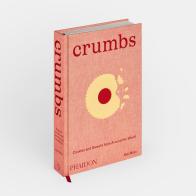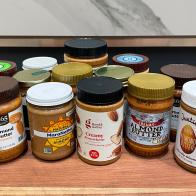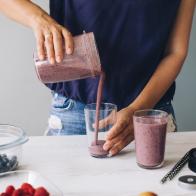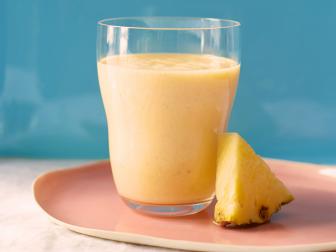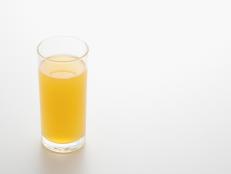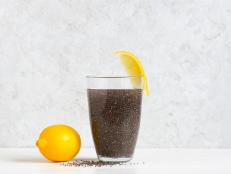Is Fruit Juice Healthy?
Juice contains plenty of great vitamins and minerals, but its lack of fiber means you miss out on some key health benefits.

Guillermo Murcia/Getty Images
If you’re someone who likes to start the morning with a glass of orange juice, you may have wondered if this part of your morning routine is healthy. On the one hand, you know that pure fruit juice contains important vitamins and minerals. On the other hand, there are plenty of people who will tell you that even the fresh-squeezed stuff is “just sugar.” So — which answer is the right one?
The truth is that what’s “healthy” depends a whole lot on context. Before saying whether something is healthy or not, it’s important to consider the person, the situation, the timing, as well as any preferences and health conditions. Here are some things to keep in mind when it comes to fruit juice, according to a dietitian and a gastroenterologist.
What’s the Difference Between Fruit Juice and Whole Fruit?
“Whole fruit contains the juice and the fiber,” says Ayelet Goldhaber, RD, a pediatric gastroenterology dietitian at NewYork-Presbyterian/Weill Cornell Medical Center. She explains that fiber plays a big role in gastrointestinal health by slowing the rate of digestion of your food, keeping you full for longer, promoting healthy bowel movements and feeding the good bacteria in your gut.
Fruit juice, on the other hand, contains only the juice with no fiber. “With juice, you’re getting sugar, plus some good vitamins and minerals,” Goldhaber says. The exact vitamins and minerals depend on which fruit your juice comes from and whether it’s fortified with additional nutrients like calcium. The amount of sugar depends as well — one cup of orange juice contains about 26 grams of sugar, while one cup of apple juice contains 24 grams and one cup of pineapple juice contains 25 grams.
Is Fruit Juice Healthy?
“I’d say that what is considered ‘healthy’ varies significantly from person to person,” says John T. Nathanson, MD, a gastroenterologist at NewYork-Presbyterian/Columbia University Irving Medical Center. Both Nathanson and Goldhaber say that generally speaking, they recommend eating whole fruit over fruit juice, since whole fruit contains all the vitamins and minerals of juice, plus fiber for additional health benefits.
But, Nathanson and Goldhaber also say that it’s important to consider the context. For example, if someone with diabetes is experiencing low blood sugar, consuming fruit juice is helpful for raising blood sugar quickly back to comfortable levels. Likewise, someone who’s been exercising for a long time and needs to replenish lost glucose (a.k.a. sugar) might choose fruit juice over fresh fruit — especially if they’re still in the middle of a workout, since fiber from fresh fruit during exercise may cause gas and bloating.
Still, it’s important to note that fruit juice isn’t a substitute for whole fruit. Drinking a glass of juice to supplement your fruit intake every once in a while is totally fine — again, you’re still getting some good vitamins and minerals — but without the fiber, it’s missing some important health benefits.
How Can I Incorporate Fruit Juice and Whole Fruit Into My Diet?
For people who love fruit juice, Goldhaber recommends a couple of things. First, she suggests trying some simple smoothies — made by blending whole fruit with some kind of liquid and maybe some other add-ins like nuts or seeds — as a way to get fiber while keeping the drinkable consistency.
Second, she recommends using fruit juice to boost hydration by adding a little bit of juice to a big bottle of water. The juice isn’t any more hydrating than water, but it gives the water more flavor which could encourage you to drink more overall.
For kids, Goldhaber suggests choosing one or two whole fruits, blending them with water or juice, and then pouring the mixture into freezer molds to form tasty, fiber-filled ice pops.
And if you don’t like fresh fruit? Goldhaber encourages people to try as many different varieties as possible before giving up on the entire category. Different fruits have different flavors, textures and levels of sweetness, which means there’s probably a fruit out there for everyone. Cooking or freezing a fruit can also change its texture and flavor, so that’s also worth a try.
The Bottom Line: Balance is key. If you love fruit juice, instead of asking yourself if it’s healthy, ask yourself how you can incorporate it into an overall healthy diet. “Balance is the key here,” Nathanson says. Fruit juice contains over 20 grams of sugar per cup without the added benefit of fiber, which means it’s probably not the best choice at every single meal. But if you love fruit juice, there’s no reason you shouldn’t drink a glass sometimes.
*This article was written and/or reviewed by an independent registered dietitian nutritionist.
Try These Recipes
Related Content:
















